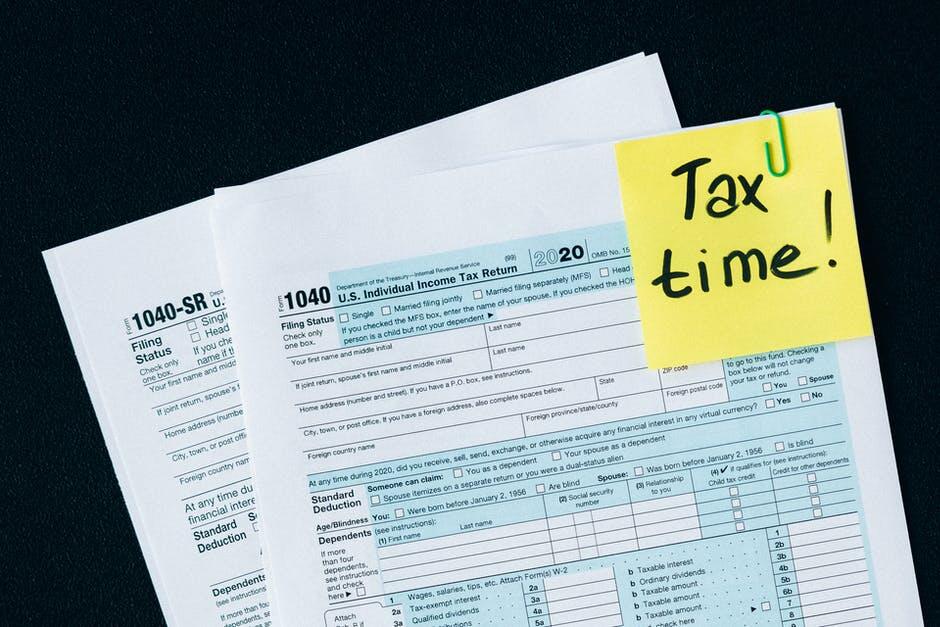Tax season can often feel overwhelming, especially for individuals and businesses. With so many rules and regulations, it’s easy to become stressed.
However, exploring the best tax solutions can help reduce stress, ensuring you maximize your savings and navigate the process with ease. Adopting effective strategies is key for not only meeting your tax obligations but also saving money along the way.
Read on to learn the best tax solutions you can use.
Contents
- 1 Understand Your Tax Responsibilities
- 2 Engage a Tax Professional
- 3 Utilize Tax Software
- 4 Identify Tax Deductions and Credits
- 5 Plan for Future Expenses
- 6 Explore Retirement Contributions
- 7 Stay Updated on Tax Laws
- 8 Organize Your Financial Documents
- 9 Review Your Tax Situation Regularly
- 10 File Your Taxes Early
- 11 Take Advantage of Tax Extensions
- 12 Maximize Your Savings With the Right Solution
Understand Your Tax Responsibilities
One of the first steps in finding the right tax solution is understanding your tax responsibilities. Whether you are an individual or the owner of a business, it is essential to know what you owe and when it is due.
In the United States, tax season typically begins in January and ends in April. Make sure to gather all necessary documents such as W-2s, 1099s, and receipts for any deductible expenses. Knowing what you need can help you feel more confident and prepared. A significant number of taxpayers file their taxes late simply because they are unprepared.
Engage a Tax Professional
Many individuals and businesses find great relief by seeking out professional help in managing their taxes. A tax professional brings knowledge, experience, and can provide you with tailored tax solutions that best meet your needs. They can help you navigate complex tax laws and find deductions that you may not be aware of.
Nashville tax services often focus on maximizing refunds for local businesses and individuals, ensuring they get the best return for their investment. This not only reduces stress but also helps you retain more of your hard-earned money.
Utilize Tax Software
If hiring a tax professional isn’t feasible or necessary, tax software can be an excellent alternative. Software programs have become increasingly user-friendly and can efficiently guide you through the filing process. They incorporate the latest tax laws and may even offer tips on deductions and credits based on your specific situation.
For individuals or small business owners, this can be a great way to reduce stress and ensure accuracy. Many find that they can complete their tax returns faster using software compared to paper methods.
Identify Tax Deductions and Credits
Understanding potential deductions and credits is vital in creating a tax solution that works for you. Deductions lower your taxable income, which reduces the amount of tax owed. Common deductions include expenses for home offices, education, and even charitable donations.
Credits are more valuable because they reduce your tax bill dollar-for-dollar. Some well-known credits are the Earned Income Tax Credit (EITC) and Child Tax Credit (CTC). For businesses, deductions for operational expenses, employee benefits, and depreciation can add up significantly, leading to considerable savings.
Plan for Future Expenses
Tax planning is not just about filing your returns in April. It’s a year-round process. It’s important to assess your financial situation regularly and plan for future expenses that could impact your taxes.
Begin by evaluating your investment strategies, business growth plans, or upcoming purchases that may yield tax benefits. The more proactive you are in planning, the less stress you will feel during tax season. Additionally, setting aside funds specifically for tax obligations can make the financial impact more manageable.
Explore Retirement Contributions
Contributing to retirement accounts is not only a smart financial strategy but also an effective tax solution. Contributions to certain retirement plans like a 401(k) or a traditional IRA can lower your taxable income.
Many employers offer matching contributions, which can provide additional savings for your future. This dual benefit of enhancing your retirement fund while reducing your present tax liability makes it a win-win situation.
Stay Updated on Tax Laws
Tax laws frequently change, and staying updated is crucial for both individuals and businesses. Frequent updates can affect how you approach your taxes, the deductions you might claim, and the overall strategy you use for tax planning.
Following reputable sources, such as the IRS website or financial news outlets, can help you stay informed. Being knowledgeable about changes can help you adapt your tax strategies appropriately, potentially even uncovering new ways to save money.
Organize Your Financial Documents
One of the best solutions to reduce stress during tax season is to keep your financial documents organized. Keeping records of income, expenses, and deductions in one place ensures that nothing gets overlooked.
Start this practice early in the year to avoid last-minute scrambling. Many find that using digital tools to create folders can streamline the process. Keeping electronic copies can also safeguard against loss and make it easy to share information with tax professionals when necessary.
Review Your Tax Situation Regularly
Don’t wait until tax season to review your financial situation. Conducting regular assessments of your taxes throughout the year can save you time and trouble.
Look for areas where you can adjust your spending, save for future expenses, or alter contributions to retirement accounts. This ongoing evaluation not only enhances your awareness but also leads to better financial decisions, which continue to provide benefits in the long run.
File Your Taxes Early
Filing your taxes early can relieve much of the anxiety associated with this annual task. Not only does it give you ample time to collect documentation and ensure accuracy, but it also allows you to resolve any potential issues well before the deadline. The IRS encourages everyone to file sooner rather than later.
By completing your taxes early, you can also avoid the rush as the deadline approaches, potentially leading to mistakes caused by common errors. Doing so also minimizes the risk of identity theft, which can be an increasing concern closer to the tax deadline.
Take Advantage of Tax Extensions
If you still feel rushed and need more time to file your taxes, consider filing for an extension. This can provide additional time, but keep in mind that an extension to file doesn’t mean an extension to pay.
It’s important to estimate your tax liability and pay any owed taxes by the original due date to avoid penalties. Using extensions wisely can give you the necessary breathing room to file accurately and on your terms.
Maximize Your Savings With the Right Solution
Finding the right tax solution can significantly reduce stress and maximize your savings during tax season. Understanding your responsibilities, engaging professionals, and utilizing smart planning strategies can lead to smart financial decisions. By taking the time to strategize and stay informed, you can navigate taxes with greater confidence and reap the benefits of your efforts.
Want to hear more tips? Please look at our page for more informative and helpful blog posts.



